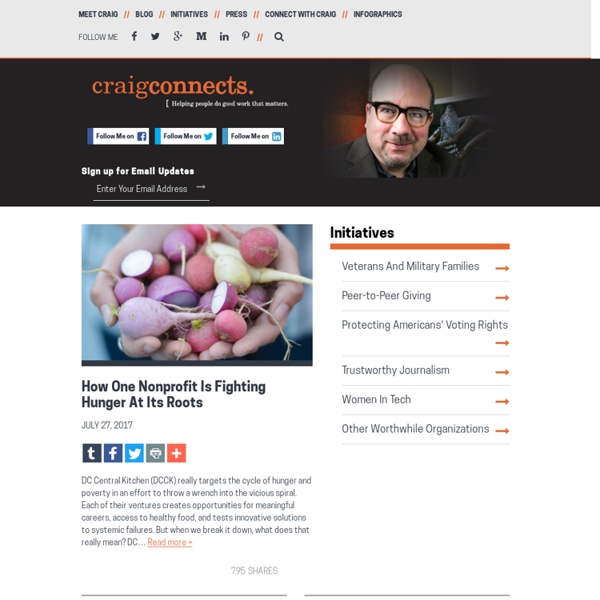



Kisskissbankbank How to start a successful NGO in 10 steps Photo by Ryan Libre . Ryan Libre explains how to start a successful NGO. Editor’s Note: In response to the overwhelming number of comments, author Ryan Libre has asked us to post this update on April 4, 2010: “It is amazing to see how many people have seen and commented on this article. I’ve worked with NGOs for most of my life, and even helped start a few. The following steps will help get your own NGO up and running: Step 1: Test the waters. Many new activists are ready to commit their lives to “the cause.” There’s no need to turn down the volume of your enthusiasm, but before starting your own NGO, consider joining one that does similar work for a while. If starting your own NGO really is right for you, the experience of working for an established NGO will only strengthen your resolve and direct your passion. Maybe you’ll find that NGOs are not your life calling after all. Step 2: Start on the right foot. “The leader’s main job is to make themselves obsolete.” Step 3: Clarify your goals.
Nonprofit Organizations - How Not to Lose Your Tax-Exempt Status Congratulations if you have jumped through all of the hoops to become a 501(c)(3) organization. But now you must be careful that your actions don't draw attention from the IRS or cause you to lose your exempt designation. Following are some of the activities that could cause your organization to lose its tax-exempt position: Private benefit/inurement A nonprofit differs from a for-profit organization in that it does not benefit the private interests of any individual or organization. Inurement goes a bit further in that it prohibits the nonprofit from allowing any of its income to be paid to, or property improperly sold (below fair market price), to insiders such as officers, directors, or employees. Lobbying An organization lobbies when it attempts to influence legislation. Political campaign activity 501(c)(3) organizations cannot endorse or oppose any candidate for public office. Activities that generate too much unrelated business income (UBI)
Ulule NGO Registration Methods in India: Trust, Society and Non profit Company NGO Registration Methods - 1 1. Trust 2. Society, and 3. Non profit Company In India non profit / public charitable organisations can be registered as trusts, societies, or a private limited non profit company, under section-25 companies. Non-profit organisations in India (a) exist independently of the state; (b) are self-governed by a board of trustees or ‘managing committee’/ governing council, comprising individuals who generally serve in a fiduciary capacity; (c) produce benefits for others, generally outside the membership of the organisation; and (d), are ‘non-profit-making’, in as much as they are prohibited from distributing a monetary residual to their own members. Section 2(15) of the Income Tax Act – which is applicable uniformly throughout the Republic of India – defines ‘charitable purpose’ to include ‘relief of the poor, education, medical relief and the advancement of any other object of general public utility’. I. II. The procedure varies from state to state. III.
Nonprofit Due Diligence - Light-Touch Research Guide - GiveSmart.org Should you invest in a particular nonprofit organization? Helping you answer that question is the goal of this guide. We’ll help guide you through the process some call due diligence: learning enough about the results, leadership, financials, and operations of an organization to make the right investment decision, while respecting the limited time of its busy leaders. And as you learn about your potential grantees, we’ll help you collect information to answer the three most-important questions to making your decision: Does the organization’s mission align with your personal philanthropic goals? Is the organization well-positioned to carry out the proposed project? The best philanthropists take this learning process seriously—but also feel inspired and have fun along the way. Areas to research: The big four You have indicated that you are comfortable basing your funding decision on a lighter-touch approach to research. Strategy and results What is the organization’s mission and strategy?
Nonprofit Groups Funneled Money For Abramoff Newly released documents in the Jack Abramoff investigation shed light on how the lobbyist secretly routed his clients' funds through tax-exempt organizations with the acquiescence of those in charge, including prominent conservative activist Grover Norquist. The federal probe has brought a string of bribery-related charges and plea deals. The possible misuse of tax-exempt groups is also receiving investigators' attention, sources familiar with the matter said. Among the organizations used by Abramoff was Norquist's Americans for Tax Reform. According to an investigative report on Abramoff's lobbying released last week by the Senate Indian Affairs Committee, Americans for Tax Reform served as a "conduit" for funds that flowed from Abramoff's clients to surreptitiously finance grass-roots lobbying campaigns. Norquist has long been an architect of tax-cutting policies and political strategies that have boosted the Republican Party.
How to Read the IRS Form 990 & Find Out What it Means How to Read the IRS Form 990 & Find Out What it Means 2005 Form 990 Version Written by Peter Swords, former Executive Director of the Nonprofit Coordinating Committee of New York, with the assistance of Victoria Bjorklund of Simpson Thacher & Bartlett and Jon Small, Executive Director of NPCC; supported by a grant from the Ford Foundation. May, 2011: A new version of this paper is available at www.npccny.org/new990/new990.htm. There is information in the Form 990 that you may find interesting and helpful for learning about the nonprofit organization that filed the Form 990. Of course, your particular interest in the organization whose Form 990 you are reviewing will influence what information you may consider significant. Immediately below we list the ten most important items we address along with where they can be found on the Form 990. #1 Identity and Tax Status – Heading, page 1 #2 How Much Income Did the Filer Receive and From What Sources? #4 What Can You Tell From Net Assets?